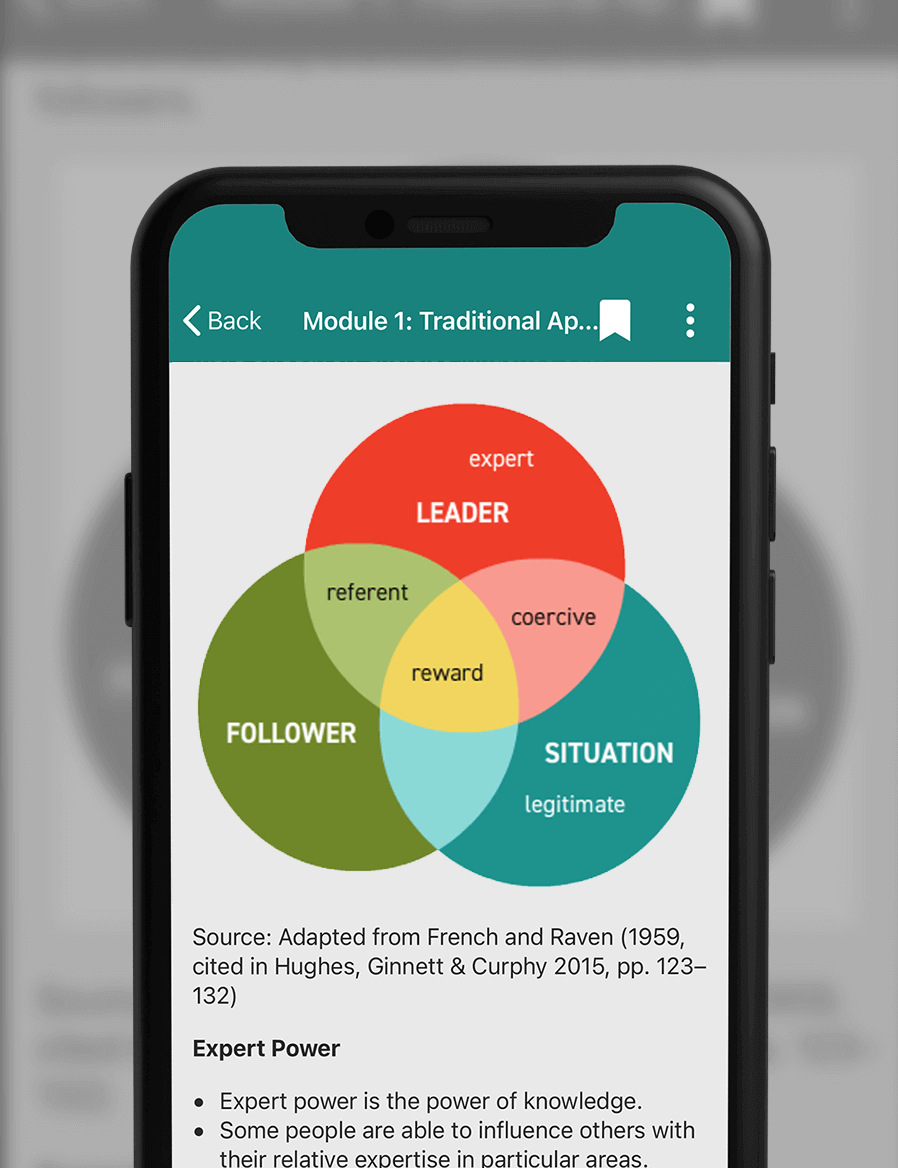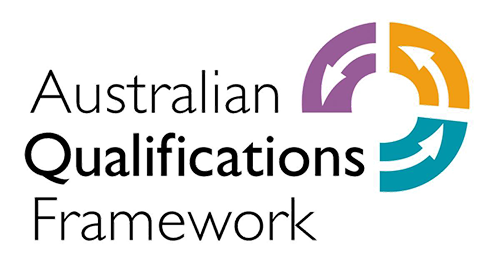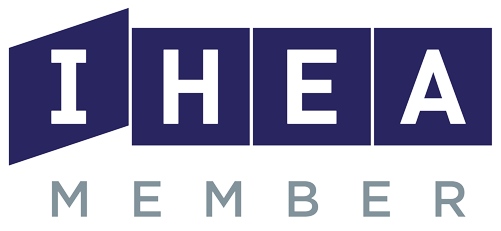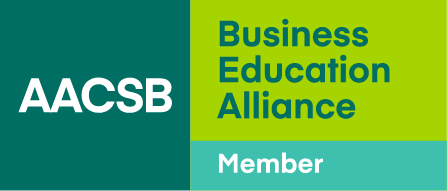The Fast-Track MBA
Designed for busy working professionals, this fully online MBA course is highly flexible and delivered with interactive, bite-sized content and personalised student support.

Australia’s #1 MBA*.
The Australian Institute of Business’ Master of Business Administration, the Fast-Track MBA, is a 100% online program that will provide you with the business and leadership skills you will need to thrive in an increasingly uncertain world.
Designed for busy working professionals, this fully online MBA course is highly flexible and delivered with interactive, bite-sized content and personalised student support.
With a strong industry focus, the Fast-Track MBA equips you with contemporary leadership and management knowledge that can be immediately applied in business and the workplace as you progress in your studies.
Learn more: What is the MBA?
*AIB is Australia’s largest provider of MBAs: see Domestic Enrolments Surged During COVID, MBA News (March 2023).
Alumni Insights Report 2023
The results of the 2023 AIB Global Alumni Insights Survey demonstrate the outstanding achievements of our former students and is a testament to their professional growth.
16K+
81%
81%
95%
$37K
65%
53%
96%
Why do an MBA?
No matter what sector you’re in, innovation and technology have created a world that is rapidly changing. It has become increasingly challenging to have the most up-to-date knowledge and experience to stay ahead of the competition.
A Master of Business Administration degree is a highly-regarded postgraduate qualification that teaches foundational business and leadership skills, as well as specialist knowledge, providing you with a pathway to career success.
Learning outcomes
The AIB MBA is a practical MBA for working adults. With no exams, you’ll instead learn from the practical application of theory to real life business problems often based on your organisation or business. An approach designed for immediate career impact.
Our programs foster your ability to understand and apply leading business theories, critically analyse and solve problems, lead and communicate effectively, and make decisions to support the growth of your team and organisation.
Our MBA opens many doors with both current and prospective employers giving you more opportunities for career progression, higher salaries, starting your own business and more.
There’s no limit to what you can do with an MBA from AIB.
*To complete the MBA in 12 months, eligibility criteria applies
| Delivery | Online |
| Number of Subjects | 9 core subjects and 3 elective subjects |
| Duration | 12 months* and up to 3 years part time |
| Start Dates | 12 intakes a year |
| Stages | 3 stages with 2 exit points |
| Entry Requirements | Prior degree or prior experience |
THE FAST-TRACK MBA WITH FLEXIBLE ENTRY AND EXIT OPTIONS
Our online Master of Business Administration is comprised of 2 nested postgraduate qualifications, so should you need to exit the MBA early, you can still achieve a postgraduate qualification.
Master of Business Administration
How you will learn
In today’s fast-moving business environment, our study schedule lets you study 6 subjects in a year and complete your MBA online in 2 years, even while you work. With the option to accelerate, you can study up to 2 subjects at once when life allows, subject to meeting concurrent study criteria. If life gets in the way of your studies, there is no need to worry – you can adjust your study timetable.
At AIB we run multiple intakes throughout a year so you can start the program when it suits you.
Each term runs for 8 weeks and during this period you’ll complete 1 subject. An 8-week period contains a mix of interactive assessments including, but not limited to, assignments, quizzes and evaluated forum participation along the way, plus one week to reflect and recharge.
Learning materials are made available 14 days prior to the subject start date so you can pre-plan your online studies around your family life, work and social commitments.
*The below timeline is an example only – assessment mix may change from subject to subject.

MULTIPLE START DATES
With the flexibility and convenience of 12 start dates every year you can start your MBA when it suits you.
Upcoming start dates
Choose your pathway
You can choose from a wide range of specialisations and electives to tailor your MBA to suit your personal, career and business goals. If you don’t want to specialise in any particular area, that’s ok. Our general MBA option allows you to mix and match subjects to tailor your study program.
MBA (Entrepreneurial Management)
- Entrepreneurship
- New Product Design
- Business Consulting
MBA (Finance)
- Financial Management
- Corporate Finance
- Financial Markets and Institutions
- Investment Management
MBA (Human Resource Management)
- Strategic Human Resource Management
- Organisational Learning and Development
- Managing People in a Global Context
- Managing Change
MBA (Logistics and Supply Chain Management)
- Operations Management
- International Business
- Procurement and Global Logistics Management
- Global Supply Chain Management
MBA (Marketing Management)
- Marketing Management
- Consumer Behaviour
- Digital Marketing
- New Product Design
Applications for the next intake are closing soon
Submit your application and you’ll hear back from us within 1-3 business days.
The Fast-Track MBA Subjects
There are 8 core subjects you’ll undertake prior to moving on to your electives, allowing you to tailor your experience to suit your personal, career and business goals. You’ll conclude your MBA with Project, the capstone subject.
Complete the 8 core subjects listed below. Additionally, you’re required to select 3 electives from the electives tab and complete the capstone Project.
Leadership (First Subject)
The subject provides a scholarly and in-depth knowledge of the dynamics of leadership and how it applies to contemporary leadership practice.
On completion of this subject participants should be able to:
- Demonstrate advanced understanding of leadership theories, concepts, and practice, including both traditional and contemporary forms of leadership.
- Critically evaluate various modes of leadership with consideration of ethical and socially responsible practice.
- Effectively communicate and apply relevant leadership principles to address diverse needs of various stakeholders.
- Develop a critically reflective leadership model for your own development.
Strategic Management (Second Subject)
This subject provides comprehensive knowledge of the strategic management process and gives exposure to the concepts and frameworks that are used in understanding a company’s competitive position in domestic and international markets, and the development of new strategies.
On completion of this subject participants should be able to:
- Demonstrate understanding of contemporary strategic management theory, concepts and principles.
- Demonstrate knowledge of how strategy formulation and strategy implementation processes work in contemporary organisations
- Conduct an analysis of the internal and external environment of the selected organisational context, using appropriate strategic management theories and frameworks to inform future direction.
- Critically evaluate different strategic alternatives and suggest an appropriate and ethical pathway for a business to build and sustain competitive advantage.
Marketing Management
This subject discusses the importance and strategic role of marketing in today’s globalised and digital business environment. Students learn practical skills that impact on business growth, like how to analyse the market context in which a business or enterprise is operating, segment the market, select an appropriate target market, and recommend strategic and tactical plans that co-create value for the selected target market
On completion of this subject participants should be able to:
- Demonstrate an advanced understanding of contemporary marketing theory and practice.
- Evaluate marketing concepts and organisational issues to make evidence-based decisions on creating value for customers.
- Apply innovative marketing approaches, techniques, and ethical perspectives to recommend an evidence-based solution to the problem of capturing value from customers.
- Communicate marketing knowledge, skills, and ideas to others in writing clearly, persuasively, and credibly.
Operations Management
This subject provides an in-depth knowledge of issues critical for the efficient and effective management of operations in service, public, manufacturing, not-for-profit, and other sectors. The subject covers operations management principles, frameworks, and contemporary topics.
On completion of this subject participants should be able to:
- Demonstrate advanced understanding of operations management principles, frameworks, and contemporary topics.
- Critically analyse and evaluate operations management issues.
- Clearly, concisely, and credibly communicate operations management knowledge to others.
- Apply relevant principles and frameworks to develop innovative and evidence-based solutions for complex operations management issues.
Financial Management
This subject prepares students for effective financial management in organisations. At a foundational level, the subject introduces how a manager can interpret financial statements, identify trends and utilise financial tools and techniques to improve decision making, alongside non-financial considerations including ethics.
On completion of this subject participants should be able to:
- Demonstrate understanding of core contemporary financial management theory, techniques and practice.
- Critically evaluate and effectively communicate recommendations to address financial management issues.
- Apply financial management theory and techniques to professional practice in an ethical manner.
Strategic Human Resource Management
This subject will prepare students for the continuously evolving nature of work in uncertain times and the challenges and opportunities that this presents for organisations in meeting the strategic needs of a diverse workforce.
On completion of this subject participants should be able to:
- Demonstrate advanced understanding of strategic human resource management theory and its application in practice.
- Critically evaluate and recommend improvements to existing human resource management strategies.
- Identify and evaluate different perspectives and contemporary trends, and their impact on strategic HRM.
- Design and effectively communicate an evidence based human resource management initiative with consideration to ethical concerns.
Corporate Governance*
This subject examines the development, concepts, and significance of the concepts and practice of Corporate Governance, and organisational governance within the context of organisational capacity building.
Pre-requisites: Three AQF Level 8 subjects must be completed before attempting Corporate Governance
On completion of this subject participants should be able to:
- Demonstrate advanced understanding of contemporary corporate governance theories, principles and regulatory frameworks.
- Use corporate governance theories and frameworks to interpret the key corporate governance responsibility, structure and function in practice.
- Critically evaluate corporate governance structure and practices with consideration of needs of various stakeholders, corporate ethics and social responsibility.
- Effectively apply and communicate relevant theories and frameworks to ensure sound and ethical corporate governance decisions in practice.
Project Management*
This subject develops the critical skills, capabilities and knowledge required to successfully manage projects across all stages of the project life cycle, applicable to all industries: service, public, not-for-profit, private, and other sectors.
Pre-requisites: Three AQF Level 8 subjects must be completed before attempting Project Management, one of which must be Operations Management
On completion of this subject participants should be able to:
- Demonstrate advanced understanding of project management principles, frameworks, and critical awareness of contemporary approaches needed for managing and leading projects.
- Critically evaluate, analyse, reflect on, and synthesise information to address complex project management issues in specific contexts.
- Research, adapt and apply relevant principles and frameworks to develop innovative, ethical, and evidence-based solutions to improving the management of projects.
- Clearly, concisely and credibly communicate project management knowledge to specialist and non-specialist audiences to inform practice.
Artificial Intelligence for Business
This subject provides an essential overview of Artificial Intelligence (AI) types and their strategic application and integration in industry that is transforming business practice. In the context of organisational leadership in the age of digital disruption, this subject explores the challenges and opportunities of AI as well as the capabilities, limitations and ethical considerations.
On completion of this subject participants should be able to:
- Demonstrate an advanced understanding of the principal concepts of Artificial Intelligence (AI) in a business context.
- Critically evaluate the capabilities and limitations of AI types and their ethical challenges.
- Analyse the strategic functional, organisational, and industry needs that can be addressed by AI solutions.
- Develop, justify and effectively communicate appropriate approaches for the deployment of AI.
Cyber Security for Managers
The aim of this subject is to provide in-depth insight into the increasing dangers and frequency of cyber-attacks on businesses and government and how best to prevent or mitigate the damaging outcomes. The likely sources of attacks will be outlined along with the methods more commonly used, inherent weaknesses in systems, examine the risk factors and outline manager’s responsibilities. How to create policies designed to mitigate attacks and how to manage them are included along with disaster planning and recovery. This is not a technical subject on the detailed workings of attacks but rather a management approach to cyber resilience, cyber disaster planning and recovery methods.
On completion of this subject participants should be able to:
- Describe the need for cyber security in context of the risks, threats, and attack vectors on an organisation’s digital information systems.
- Analyse weaknesses and vulnerabilities in an organisation’s digital information systems to determine threats and controls for risk management.
- Design cyber security policies that help mitigate the weaknesses in digital information systems, define organisational data governance protocols and comply with legal obligations.
- Critically analyse and effectively communicate a complex cyber disaster recovery and contingency plan and recommend improvements to inform professional practice using contemporary cyber security threats, best practice models and/or frameworks.
Business Analytics for Managers
This subject provides an overview of business analytics concepts and their applications in the business environment.
On completion of this subject participants should be able to:
- Demonstrate advanced understanding of fundamental concepts and methods in business analytics and what business analytics can do for a business.
- Critically evaluate and reflect on the business analytics maturity of organisations and organisational readiness for implementing business analytics.
- Research and apply relevant business analytics methods and frameworks to address strategic, operational, and tactical decision problems in organisations.
- Effectively communicate business analytics requirements and the relevant findings with various stakeholders including their data expert.
Entrepreneurship
This subject provides scholarly, practical and in-depth knowledge of contemporary entrepreneurial professional practice and entrepreneurial mindsets. By exploring the key life cycle stages of an entrepreneurial venture and the drivers of entrepreneurial culture, students are provided with insights into the process of entrepreneurship and into developing the resource base needed to pursue entrepreneurial initiatives. The subject draws on experiential and collaborative learning to build and strengthen entrepreneurial capabilities.
On completion of this subject participants should be able to:
- Examine contemporary entrepreneurship theory and practice to create insights into potential entrepreneurial opportunities.
- Reflect upon, and apply contemporary entrepreneurship approaches, techniques and ethical perspectives, that develop an entrepreneur’s: leadership, mindset, capabilities and pathways to an entrepreneurial career.
- Evaluate the external and internal environmental factors and contexts of an entrepreneurial venture to create and formulate well-informed decisions that will ensure the success of the venture.
- Communicate entrepreneurship knowledge, skills and ideas to others clearly, persuasively and credibly.
New Product Design*
This subject takes the student through new product design from conception to launch of a new product or service. The subject aims to provide in-depth knowledge and application of traditional and innovative tools and frameworks used in a successful new product design process.
Pre-requisites: Marketing Management
On completion of this subject participants should be able to:
- Demonstrate an advanced understanding of contemporary new product design theory and practice.
- Demonstrate an ability to apply innovative approaches and techniques as well as ethical perspectives throughout the development of new product design.
- Evaluate complex business concepts and issues to deliver an evidence-based rationale for new product design.
- Communicate new product design knowledge, skills and ideas to others clearly, persuasively and credibly.
Business Consulting
The subject provides scholarly and practical in-depth knowledge of the business practices, processes and management for external consultants, owners of consulting firms and those with expertise considering consulting as a profession who are wanting to start, run or scale a business consulting enterprise.
On completion of this subject participants should be able to:
- Demonstrate advanced understanding of contemporary business consulting theory, process and practice.
- Apply innovative approaches and techniques as well as ethical perspectives throughout the development of a consulting service.
- Evaluate complex business and enterprise concepts and issues to make evidence-based recommendations.
- Communicate business consulting knowledge, skills and ideas to others clearly, persuasively and credibly.
Corporate Finance*
The objective of the subject is to provide an integrated framework and analytical tools that are used by the firm managers to make financial decisions that improve firm value.
Pre-requisites: Financial Management
On completion of this subject participants should be able to:
- Demonstrate advanced understanding of contemporary corporate finance theory, analytical frameworks and practice.
- Critically analyse and effectively communicate complex corporate finance issues and recommend improvements to inform professional practice.
- Plan and prepare a substantial evidence based corporate finance report in an ethical manner.
Financial Markets and Institutions*
This subject presents a detailed overview of the features of modern financial and monetary systems, and enables an in-depth understanding of complex institutions, markets, and securities that are part of them.
Pre-requisites: Financial Management
On completion of this subject participants should be able to:
- Demonstrate advanced understanding of contemporary financial markets and institutions theory, analytical frameworks and practice.
- Critically analyse and effectively communicate improvements relating to financial markets and institutions issues.
- Plan and present a substantial evidence-based financial markets and institutions report in an ethical manner.
Investment Management*
The objective of the subject is to provide comprehensive theoretical and practical knowledge on investment management. The subject covers major theoretical concepts, namely, modern portfolio theory, diversification, and equilibrium models of security prices. The subject also includes macroeconomic and industry analysis, pricing of main financial derivatives, and evaluation of portfolio performance.
Pre-requisite: Financial Management
On completion of this subject participants should be able to:
- Demonstrate advanced understanding of contemporary investment management theory, analytical frameworks and practice.
- Critically analyse and effectively communicate complex concepts, investment management issues and recommend improvements to inform professional practice.
- Plan and undertake a substantial evidence-based report in an ethical manner.
Organisational Learning and Development
This subject provides scholarly, practical, and in-depth knowledge to support and critically evaluate contemporary approaches to organisational learning and development (OLAD). Drawing on adult learning theory, students will be involved in diagnosing an organisation’s learning and development needs. Subsequently, they will gain an insight into the process of design, implementation, and evaluation of learning and development initiatives in line with the organisation’s strategic direction. Implications for fostering capabilities for the development of human capital for sustained competitive advantage will be examined.
On completion of this subject participants should be able to:
- Identify and evaluate organisational learning and development and its strategic application in practice.
- Diagnose learning and development needs that align with the organisation’s strategic focus.
- Design an evidence-based organisational learning and development initiative to address current and future organisational needs whilst maintaining professional integrity.
Managing People in a Global Context*
This subject explores how globalisation has influenced and impacted human resource management practices in multinational enterprises (MNEs).
Pre-requisites: Strategic Human Resource Management
On completion of this subject participants should be able to:
- Demonstrate advanced understanding of contemporary international HRM theories, principles and concepts.
- Critically analyse international HRM practices and their application in a global context.
- Identify and evaluate different contemporary perspectives, value systems and trends and their impact on international HRM policy and practice.
- Design and effectively communicate an appropriate evidence-based international HRM strategy which takes into account socially responsible and ethical practice for an organisation.
Managing Change*
Managing Change focuses on organisational change: why it occurs, how it occurs, how it can be managed, and what forms it can take. The complexities of change present real challenges for managers and leaders and, hence, challenges for managers and leadership in times of change are also addressed.
Pre-requisites: Strategic Human Resource Management
On completion of this subject participants should be able to:
- Demonstrate advanced understanding of theories of planned change, a range of established change management approaches and their applicability in organisational settings.
- Assume a leading role in critically evaluating organisational and behavioural issues that may affect the change process and recommend strategies to combat these issues.
- Analyse complex organisational issues including any ethical considerations in relation to a planned change initiative.
- Formulate, effectively communicate and implement change initiatives and strategies for organisations.
Consumer Behaviour*
The subject highlights the importance of consumer behaviour and customer experience concepts and theories in understanding the consumer decision making process as well as the customer journey. The subject addresses knowledge and analytical skills to assess the influence of various factors in consumer decision making and understand the importance of integration and measurement of customer experience.
Pre-requisites: Marketing Management
- Critically analyse the influence of various factors on consumer decision-making and purchasing behaviour.
- Demonstrate the ability to evaluate, synthesise and apply innovative approaches, techniques and perspectives to consumer behaviour and customer experience management.
- Recommend appropriate marketing strategies in a variety of marketing scenarios based on in-depth analysis of consumer behaviour within target markets.
- Communicate customer experience knowledge, skills and ideas to others clearly, persuasively and credibly through customer journey mapping, deriving recommendations to enhance customer experience.
Digital Marketing*
There is an expectation that modern enterprises engage in digital marketing providing positive brand experiences for their customers and other stakeholders. Digital marketing is increasingly important to understand, because customers engage online and offline with brands. This subject is designed to provide students with an understanding of digital marketing. Students will learn about the various types of digital marketing as well as to how to plan, deploy, manage and evaluate a digital marketing strategy.
Pre-requisites: Marketing Management
On completion of this subject participants should be able to:
- Demonstrate an advanced understanding of contemporary new digital marketing theory and practice.
- Examine digital marketing theory, measures and practice to create a comprehensive digital marketing audit.
- Critically analyse various metrics, innovative approaches, techniques and ethical perspective to design a digital marketing strategy.
- Communicate digital marketing strategies, tactics and measures to others clearly, persuasively and credibly.
International Business
This subject provides a contemporary understanding of international business and its complexities including the role of multinational firms. Students will gain insights into the roles played by formal and informal institutions on the performance of their firm. Students will examine how countries trade with each other and how organisations implement various international strategies to compete globally and obtain competitive advantage.
On completion of this subject participants should be able to:
- Demonstrate advanced understanding of contemporary International Business theories, concepts and principles, and their application in practice
- Critically evaluate the role and impact of country-level macro environment and institutions to make appropriate recommendations for a business operating internationally.
- Critically evaluate various international strategies and entry modes and make appropriate recommendations for a business operating internationally.
- Plan and effectively communicate a relevant and evidence-based international business activity for an organisation with ethical considerations.
Procurement and Global Logistics Management*
This subject focuses on the design of effective procurement and global logistics systems and how such systems can be improved during periods of uncertainty. It covers areas such as customer relationship management, warehousing and packaging, and transportation. It explains how these elements combine to form a logistics network. Students will analyse the impacts and opportunities of uncertainty on procurement and logistics management.
Pre-requisites: Operations Management
On completion of this subject participants should be able to:
- Critically analyse procurement and global logistics systems in the times of uncertainty using relevant theories and frameworks.
- Develop evidence-based recommendations to improve procurement and logistics systems.
- Synthesise and communicate procurement and global logistics management knowledge to inform practice.
Global Supply Chain Management*
Today’s business and economy happens in a global and circular supply chain. Successful organisations in various sectors (e.g. service, public, NFP, manufacturing) strategically collaborate with their local and/or global supply chain partners to gain competitive advantage and create more value for the end customers. Well-managed adaptive supply chains help them win and retain customers, unravel opportunities, and leverage digital trends to achieve and sustain long term value creation. This subject takes a strategic and global approach to Supply Chain Management and covers key principles, frameworks, and contemporary topics.
Pre-requisites: Operations Management
On completion of this subject participants should be able to:
- Demonstrate advanced understanding of global supply chain management principles, frameworks, and contemporary trends.
- Critically analyse, reflect on, and synthesise complex information, problems, principles and frameworks related to supply chain management at the strategic and global level.
- Research and apply relevant principles and frameworks to develop innovative, evidence-based and sustainable solutions to navigate the supply chain landscape.
- Clearly, concisely and credibly communicate strategic and global supply chain management knowledge to specialist and non-specialist audiences to inform practice and showcase competencies as future ready SC leaders.
Directed Study*
Directed Study requires students to undertake a specific project to further their disciplinary study and theory application in addition to the final MBA Project. The Directed Study is an individual project which is supervised by one or more academic staff member(s), based on topics that are aligned with the discipline expertise offered at AIB. The topic and assessment pieces are developed in consultation with the academic supervisor(s). Meetings between the student and the staff member(s) are periodic and at the request of the student or the staff member(s). The staff member(s) may set milestones and timelines for the student to meet. The subject provides scaffolding for the design and development of an individual research project and for the application of theory in a practical workplace context. Please note, Directed Study is not intended to be a replacement for an existing subject.
Pre-requisites: All AQF Level 8 subjects.
On completion of this subject participants should be able to:
- Demonstrate advanced understanding of the design and implementation of an individual project.
- Evaluate and synthesise existing research to enable the creative planning and execution of scholarship in a practical, real-world context.
- Design and implement an individual project for the application of theory in a practical workplace context.
The objective of this capstone subject is to undertake a project related to the chosen area of professional focus. Students will identify an appropriate workplace or industry related research problem or opportunity, conduct a concise review of theories and frameworks, engage in identifying secondary data, analyse the data and present findings in a formal business research report.
Pre-requisite: A minimum of 10 MBA courses must be completed before attempting the Project (i.e. all 6 AQF Level 8 core subjects and at least 4 AQF Level 9 subjects.)
On completion of this subject participants should be able to:
- Critically examine contemporary business theory and practices related to an identified enterprise (or industry) problem or opportunity.
- Demonstrate ability to apply innovative approaches, techniques, ethical perspectives, and the use of secondary data, to an identified enterprise (or industry) problem or opportunity.
- Critically evaluate business (or industry) concepts and synthesise existing research, theory, and secondary data to advise business stakeholders on business solutions.
- Communicate evidence-based recommendations to stakeholders clearly, persuasively, and credibly.
*When scheduling your timetable, please note that some subjects have pre-requisites that must be successfully completed prior to commencing the subject.
For further information on specialisations or available elective units, view the MBA Subject Guide.
If you have completed any postgraduate level courses (AQF Level 8 and above) or Project Management Professional (PMP) and CPA certifications in the past, you may be able to apply for credit transfer. For further details, please refer to Articulation, Credit Transfer and Recognition of Prior Learning Policy and Articulation, Credit Transfer and Recognition of Prior Learning Procedure.
Our Timetable:

Access your learning materials on the go
100% Online Learning
Rather than expecting you to fit around us, we’ve found innovative ways to make our subjects fit around you.
Our innovative Student Learning Portal is your ultimate digital resource for everything you’ll need to successfully complete your online MBA course with the flexibility to access your learning materials, videos, podcasts and other multimedia. You’ll engage with fellow students and have key concepts explained by your Online Facilitators in webinars and forums.
In addition to the Student Learning Portal, the myAIB app allows you to download modules and full subjects to view offline to save your cellular data, receive notifications for assessments and webinars, listen to audio versions of modules through Soundcloud and enjoy many other useful features.
The myAIB learning portal app is available on Google Play and on the Apple App Store.
Get a sneak peek of AIB’s learning portal
Want to know more about the Fast-Track MBA?
Your MBA structured for success
An MBA is a journey. Sometimes you take the fast-track; sometimes you need to slow down. Our flexible study options help you achieve your dreams at your own pace. You’ll study each subject over eight weeks, with assessments along the way and a week to reflect and recharge. You can choose to accelerate your career by studying up to two subjects at once when life allows, subject to meeting our eligibility criteria. And if life’s commitments get in the way of your study or you simply need to hit the pause button, you can stop and start again when it suits you.
Duration
You can complete your MBA in as little as 12 months and up to 3 years, subject to meeting our eligibility criteria.
Time Commitments
We anticipate that you will spend about 150 hours per subject (or 15-20 hours per week) to complete your MBA.
Fitting an MBA Into Your Life
Can you fit the required study time into your busy schedule? Try our online study time calculator.
There For You
You’ll be supported by 181 academic, student support and professional staff, who will be with you every step of your MBA journey.
ROI Calculator – The cost of not getting an MBA
Ever wondered what an MBA could be worth to you? Based on our graduate data, you can now see what the Fast-Track MBA might mean for your income with our MBA ROI Calculator. Remember, before you make any financial decisions, you should get information and advice from qualified professionals regarding your personal circumstances and financial affairs.
MBA Entry Requirements
You don’t need a degree to qualify for an MBA- your experience counts!
Applicants must have ONE of the following:
Minimum 5 years experience
An Advanced Diploma
A Bachelor’s degree
Minimum GMAT score of 550
Accredited and Recognised
Our programs are accredited by the Tertiary Education Quality and Standards Agency (TEQSA) within the Australian Qualifications Framework (AQF), meeting the highest education standards in Australia.
AIB’s Fast-Track MBA is highly regarded both nationally and globally, and recently achieved a Tier One status for the third year running, ranking #5 nationally and #25 globally in CEO Magazine’s 2024 Online MBA Rankings.
Graduates of the Fast-Track MBA are seen by employers as valuable leaders that drive business growth.
- International Association of Universities (IAU)
- Independent Higher Education Australia (IHEA)
- Australian Human Resource Institute (AHRI)
- Supply Chain and Logistics Association of Australia (SCLAA)
- International Council for Open and distance Education.
Professional Memberships
AIB is recognised by various professional, academic and industry bodies.





AIB’s Global Community
When you graduate with an AIB degree, you become a lifelong member of the school’s diverse and highly skilled alumni network, comprised of over 16,000 business school graduates with over 24,000 business school qualifications awarded globally.
Our graduates come from 95 countries around the world! From Australia and Canada to Sri Lanka and Trinidad & Tobago – the AIB alumni community is a truly global network of professionals.
Our alumni work for some of the world’s most well-known brands and are active across all industries, including financial services, government, manufacturing and logistics, healthcare, education, information technology, mining and energy, consulting, engineering, not-for-profit, public sector and more.
24,000+
16,000+
181
3,500+
12,000+
40
Note: All graduate, student and academic head-count numbers were true as of February, 2024.
AIB’s toolkit for success
Get study-ready from the very beginning of your Fast-Track MBA journey with access to the best study resources, scholarly libraries and dedicated academic support. We’ll arm you with all the tools you need to not only successfully complete your degree, but to excel in your career.
need in one place
Frequently Asked Questions
How do I know if I am eligible to study an MBA at AIB?
There are multiple entry pathways to be eligible to study your MBA at AIB, you just need to meet one of the following:
- A minimum of five years relevant work experience – which included at least 3 years management experience or significant technical experience.
- A Bachelor’s degree (AQF Level 7) and at least two years relevant work experience.
- An Advanced Diploma Associate Degree (AQF Level 6 or learning equivalent) and at least 3 years relevant work experience.
- Minimum Graduate Management Admission Test (GMAT) score of 550 and at least 3 years relevant work experience.
For applicants from non-English speaking regions and/or who have studied in a foreign language, AIB has an English language proficiency requirement that needs to be met in order to be accepted into the MBA. Speak to your Course Advisor about the variety of ways your English language proficiency can be demonstrated.
For further details regarding eligibility criteria, follow this link.
How do I apply to study at AIB?
Applying to study with AIB is as easy as 1-2-3.
- Check eligibility, reserve your spot and complete your application form
- Upload your supporting documentation
- Accept your letter of offer
Once you’ve accepted your letter of offer, you’ll be well on your way to becoming an AIB student! The process from here is just as easy; our enrolment tracker will lead the way…More information on entry requirements including English language requirements can be found on our website.
How much time do I need to commit to studying each week?
On average, most students will need to study for around 150 hours to complete each MBA subject. That means you will need to be able to schedule 15 – 20 hours per week in your calendar. Keep in mind that some weeks you may need a little more time and some weeks you may need a little less and everybody is different.
If you’re not sure, why not use our MBA Time to Study Calculator. It’s a quick way to look at your study opportunities each week and whether you have enough hours per week to do an MBA. Even with work, family and social commitments, you might be surprised how much study time you can fit in if you put your mind to it.
I have previous higher education experience, can I apply for credit towards my studies?
If you have completed study at an Australian equivalent postgraduate level, then you may be able to apply for credit towards specific subjects. Before you apply, please refer to the Programme Exemptions document which lists all qualifications for which AIB has a standing articulation agreement with another institution or which we have pre-assessed for our precedents another institution’s qualifications. The maximum amount of credit which can be granted for these qualifications against AIB courses (MBA) is shown in the table. The table is by no means exhaustive, as AIB can also assess qualifications from institutions which are not represented here via our standard exemption application process.
You should also refer to the Articulation, Credit Transfer and Recognition of Prior Learning Policy and Procedure on the AIB Policies webpage for more information.
The online enrolment form contains a link to the specific subject exemption application form which you will need to complete and submit to your course advisor as soon as possible. If you’re interested in applying for credit transfer, you must apply before you start your Course. We recommend that you submit your application as early as possible in the enrolment process so that any credit can be applied before you start (this will also avoid situations where you’ve studied something for which you could’ve gained credit). To kick off the process, tick “yes, I intend to apply for credit transfer” when completing your online application form.
If you are successful in being granted credit towards AIB subjects, you should note:
- Exempted subjects will be referred to as ‘Exempted’, ‘Special Topic in Management’ or similar on your Academic Transcript and show as an (E) grade.
- Exempted subjects will not count towards your overall Grade Point Average (GPA).
- The total course fee payable will be reduced in respect of the exempted subjects.
Can I gain recognition for my industry experience?
Recognition of Prior Learning (RPL) is the formal recognition of learning demonstrated through existing knowledge and skills. To apply for RPL, you’ll need to compile a portfolio which clearly demonstrates and provides evidence that your existing learning matches the learning outcomes of an AIB subject. It is important to note that RPL is only available for complete higher education subjects and is not offered for parts of subjects.
You should refer to the RPL Guide for Applicants and the Articulation, Credit Transfer and Recognition of Prior Learning Policy and Procedure on the AIB Policies webpage for more information.
If you’re interested in applying for recognition of prior learning, you must apply before you start your Course. We recommend that you submit your portfolio as early as possible in the enrolment process so that any credit can be applied before you start (this will also avoid situations where you’ve studied something for which you could’ve gained credit). To kick off the process, tick “yes, I intend to make RPL claim” when completing your online application form.
If you are successful in being granted credit towards AIB subjects, you should note:
- Exempted subjects will be referred to as ‘Exempted’, ‘Special Topic in Management’ or similar on your Academic Transcript.
- Exempted subjects will not count towards your overall Grade Point Average (GPA).
- The total Course fee payable will be reduced in respect of the exempted subjects.
What forms of payment are accepted by AIB?
AIB is one of the most affordable premium higher education providers. We accept an array of different payment options for your convenience including:
For Australia, if you’d like to access FEE-HELP, you can learn more here. Or, if you are residing in Canada, you can learn more about financing specific to Canadian students.
I’d like to chat to a person, how can I get in contact?
We are happy to answer any questions you might have about studying with us. Feel free to fill out a form and one on our Course Advisors will be in touch either by phone or email to answer your questions.
Alternatively, you can call us on 1300 304 820.

Acknowledgement of Country
We acknowledge the Kaurna people, the Traditional Custodians of the land on which AIB is located, and pay our respects to their Elders past, present and emerging.
Our students are across many lands, and we recognise and respect all cultural heritage, beliefs and relationships with the land. We acknowledge Traditional Custodians of the country throughout Australia and on all the lands on which our students study.
Photographed – Uncle Mickey Kumatpi Marrutya O’Brien, at AIB Graduation Day October 2022.




